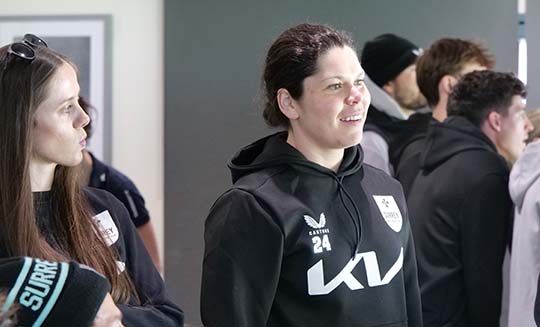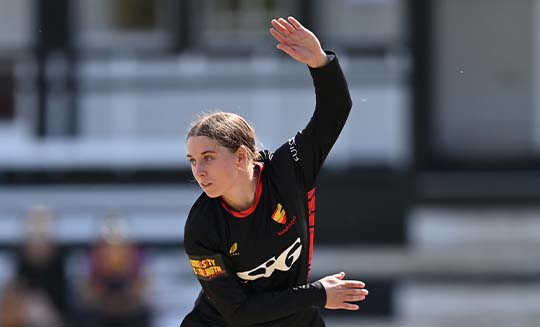PCA PRESS RELEASE
PCA joins World Players Association and World Cricketers’ Association in repeating calls for effective regulation of contaminants.
To see more articles, click here
The PCA and its affiliates the World Players Association (WPA) and the World Cricketers’ Association (WCA) are reiterating calls for the World Anti-Doping Agency to revise its anti-doping rules and implement a fair and effective regime for known contaminants following the draconian sanctioning of English cricketer Chris Wright.
Wright was forced to accept a nine-month suspension for an inadvertent Adverse Analytical Finding arising from Ostarine, despite the panel finding he had not intended to breach anti-doping rules.
Wright’s case is the latest example of WADA’s flawed regulation for known contaminants that continues to erode athlete trust and confidence in the system. Issues connected to contamination arising from Ostarine have long been known, yet to date WADA has failed to meaningfully reform its rules and processes.
The root cause of this is anti-doping science has evolved much faster than WADA’s rules which lag behind industry best practice. Substances prohibited under the Code can be detected at levels as low as a trillionth of a gram or a ‘picogram’.
Two fundamental changes would resolve most issues connected to known contaminants:
1. Introducing reporting thresholds for the full range of substances that are known to be contaminants, such as Ostarine.
2. In cases where athletes test positive for substances below these thresholds, there should be an appropriate investigation and the burden of proof should be reversed onto the anti-doping authority.
The World Players Association, which through its affiliates represents 85,000 professional athletes worldwide, outlined this in correspondence to the senior leadership of WADA in November 2023 where it shared a number of Best Practice Improvements that would enhance the regulation of anti-doping worldwide. In its letter World Players emphasized:
“Many of the systemic causes [of injustice] remain unaddressed in the Code and Standards, and we sadly continue to see cases that may take years to resolve, including athletes wrongly labelled as cheats before positive tests have been confirmed and due process afforded, and often career-ending sanctions being imposed in cases of inadvertent doping, such as through contaminated supplements.”
To date the correspondence has not been acknowledged and the issue at large remains unaddressed continuing to leave athletes like Wright stranded as they have to prove their innocence in an incredibly complex, costly and often inconsistent system.
Player associations worldwide will continue to advocate for an evidence-based global anti-doping system that keeps pace with best practice developments. The reputations, careers and livelihoods of athletes should not be collateral damage because of the failures in WADA’s regulatory regime.
About the World Players Association:
The World Players Association is the exclusive global voice of organised players and athletes across professional sport. It brings together 85,000 players through more than 100 players associations in over 60 countries. Its role is to ensure that the voice of organised players is heard at the highest levels in the decision-making of international sport. The World Players Association was formally established in December 2014 as an autonomous sector of UNI Global Union (UNI).
About the World Cricketers’ Association:
WCA is the world players’ body in cricket. Established (as FICA) in 1998, WCA is a democratic player-driven organisation that brings together the world’s ‘organised’ professional cricketers under an international body which focuses on matters that affect the players collectively, and the global game. Players who are affiliated to WCA are, by extension, also guaranteed the support of the other players and players’ associations in other countries.













